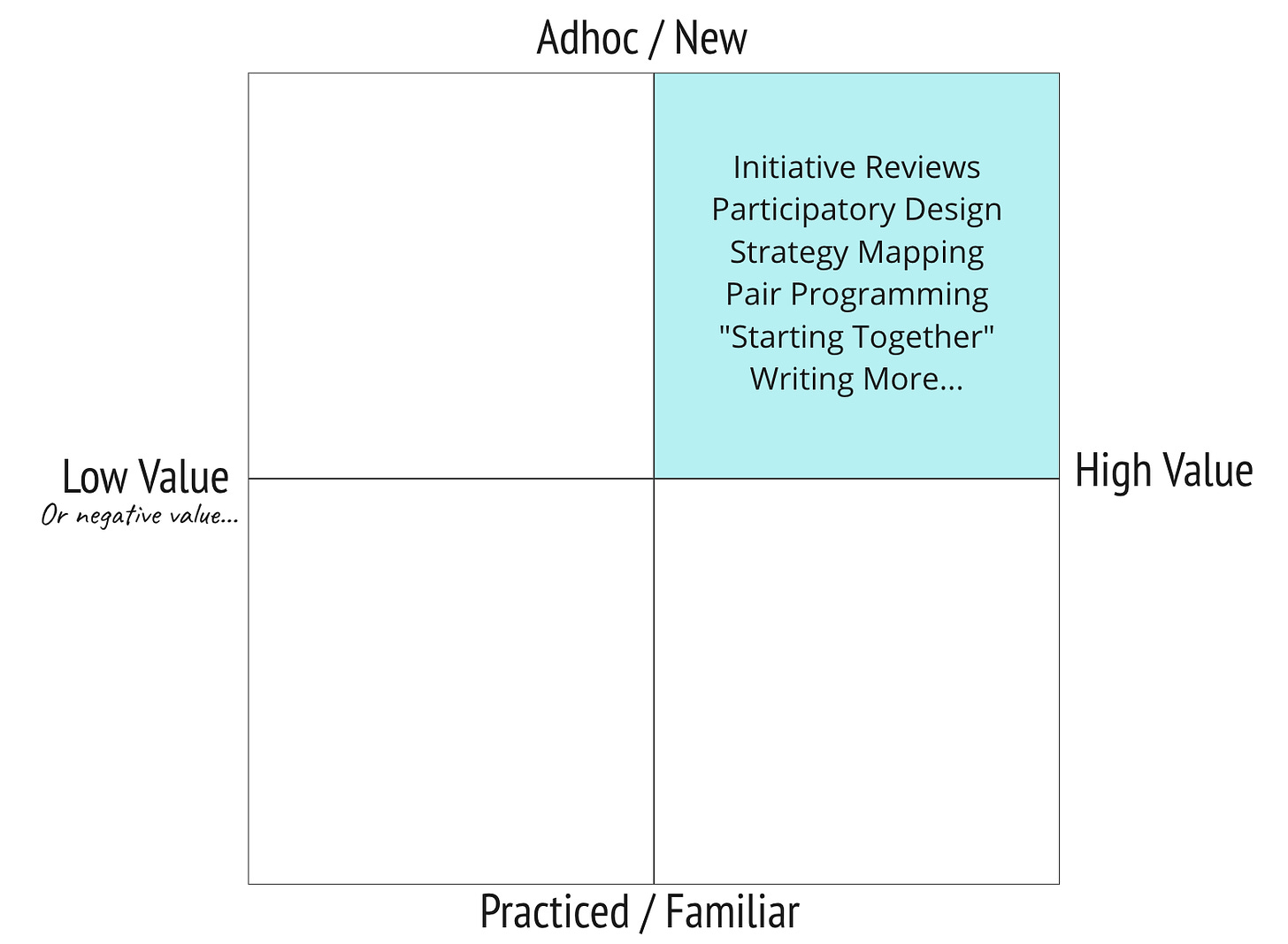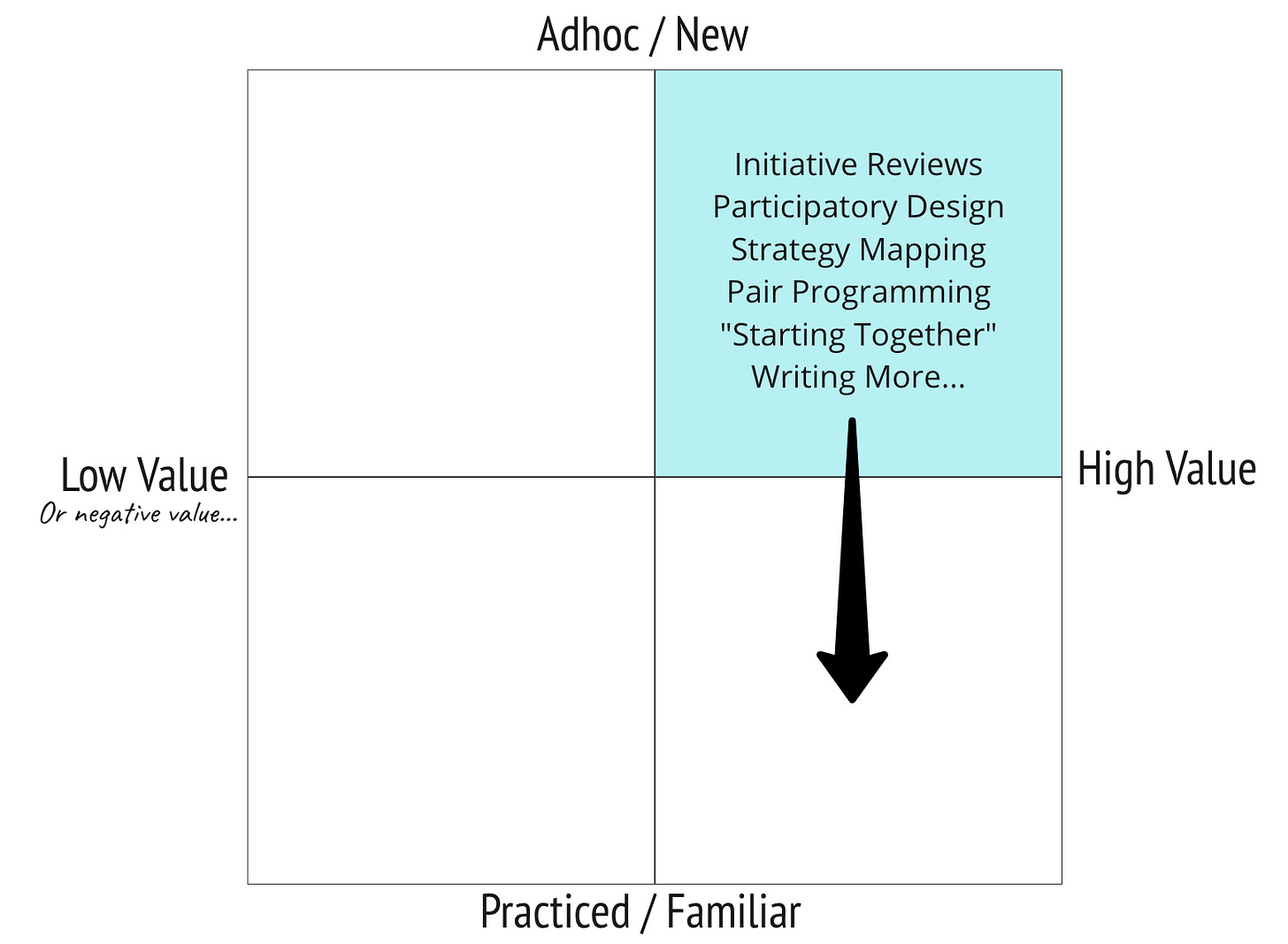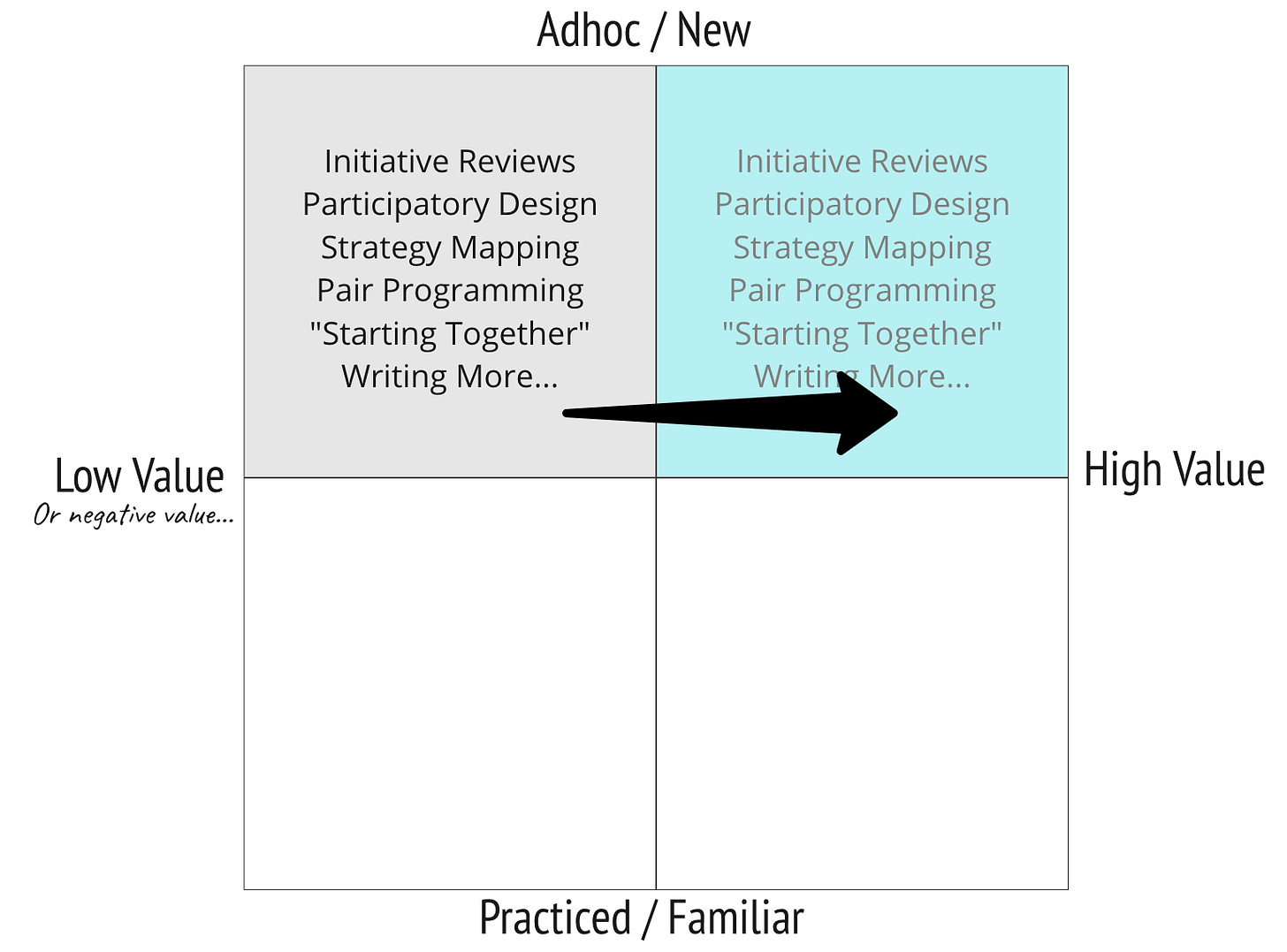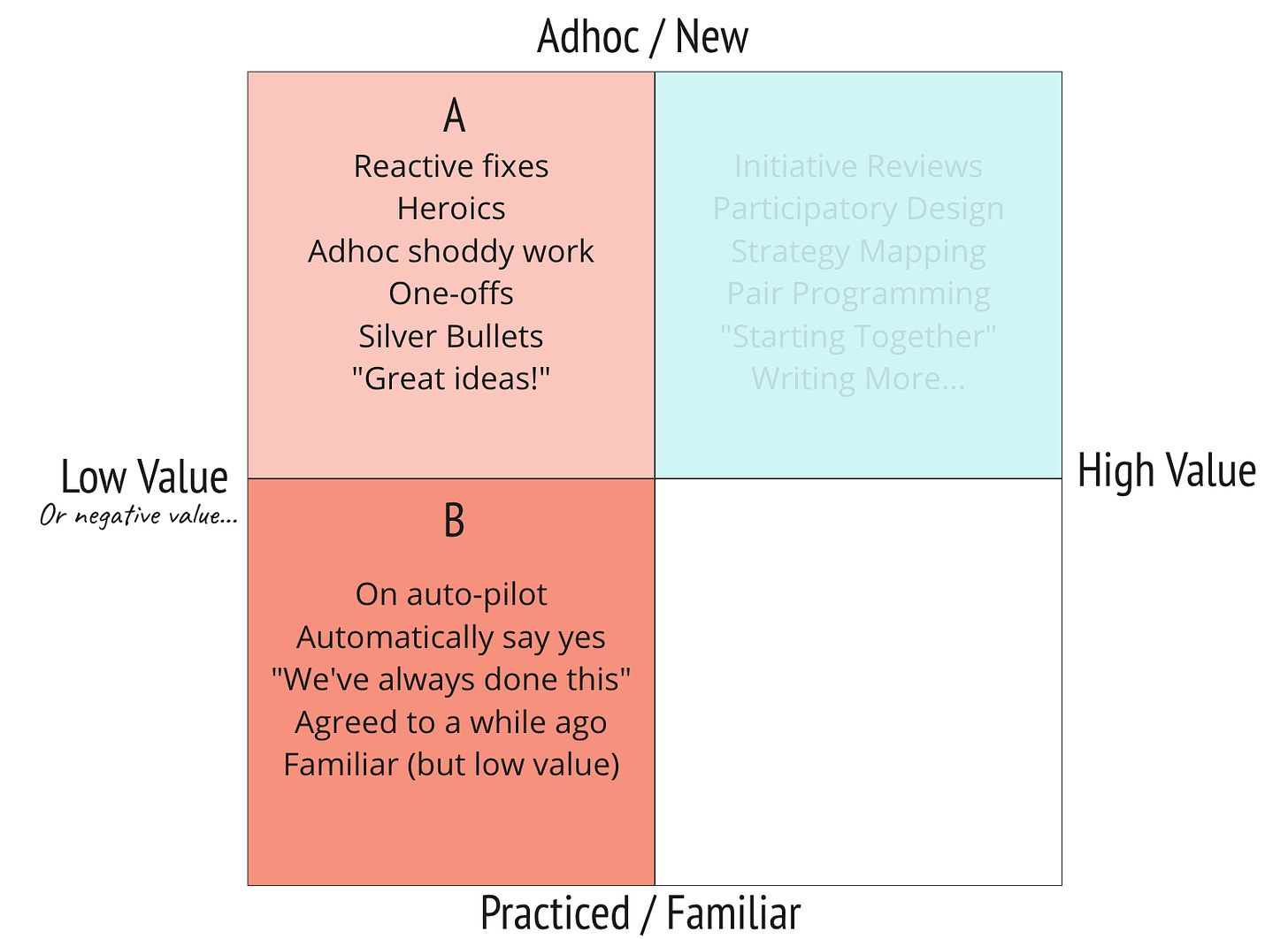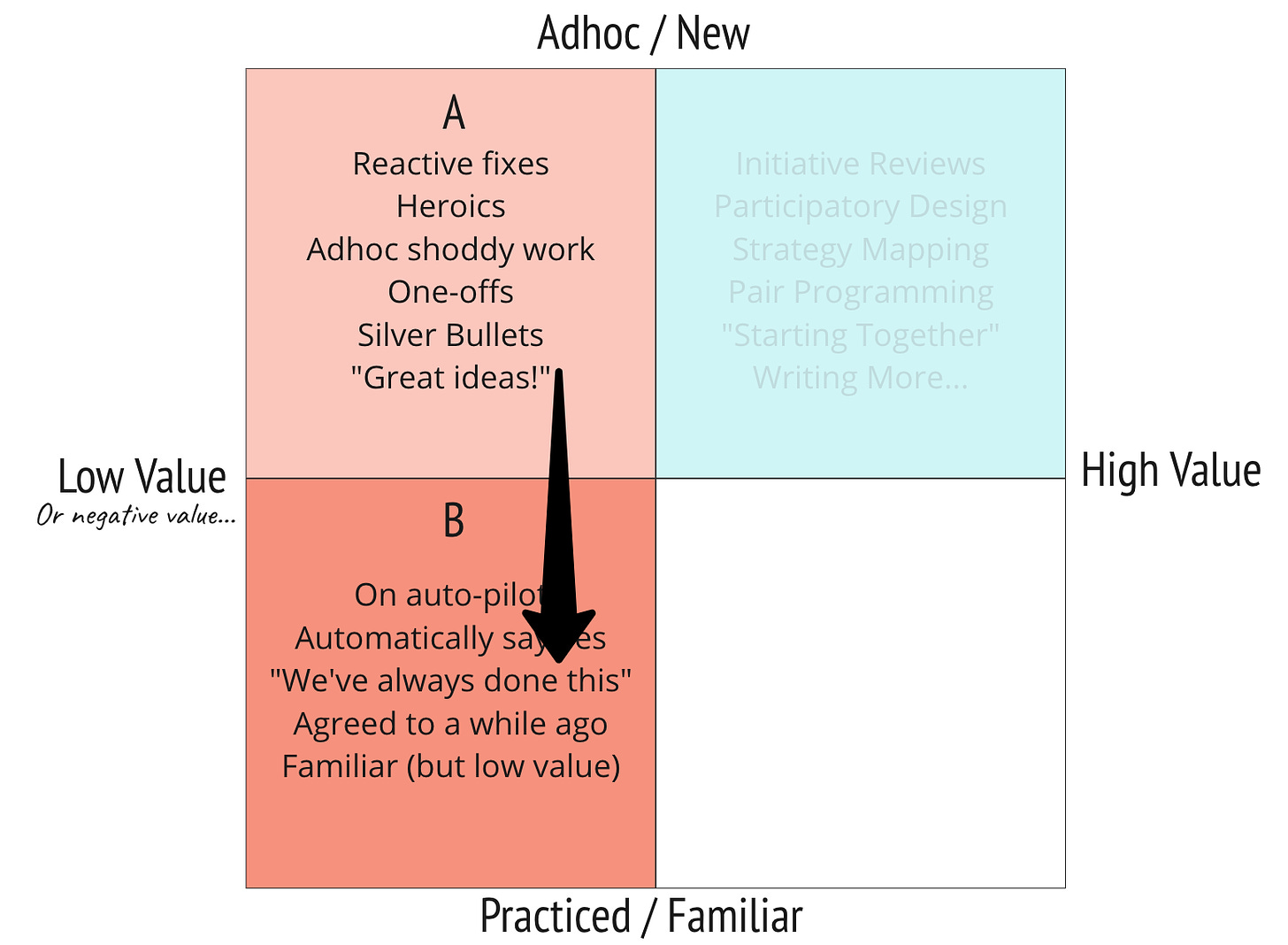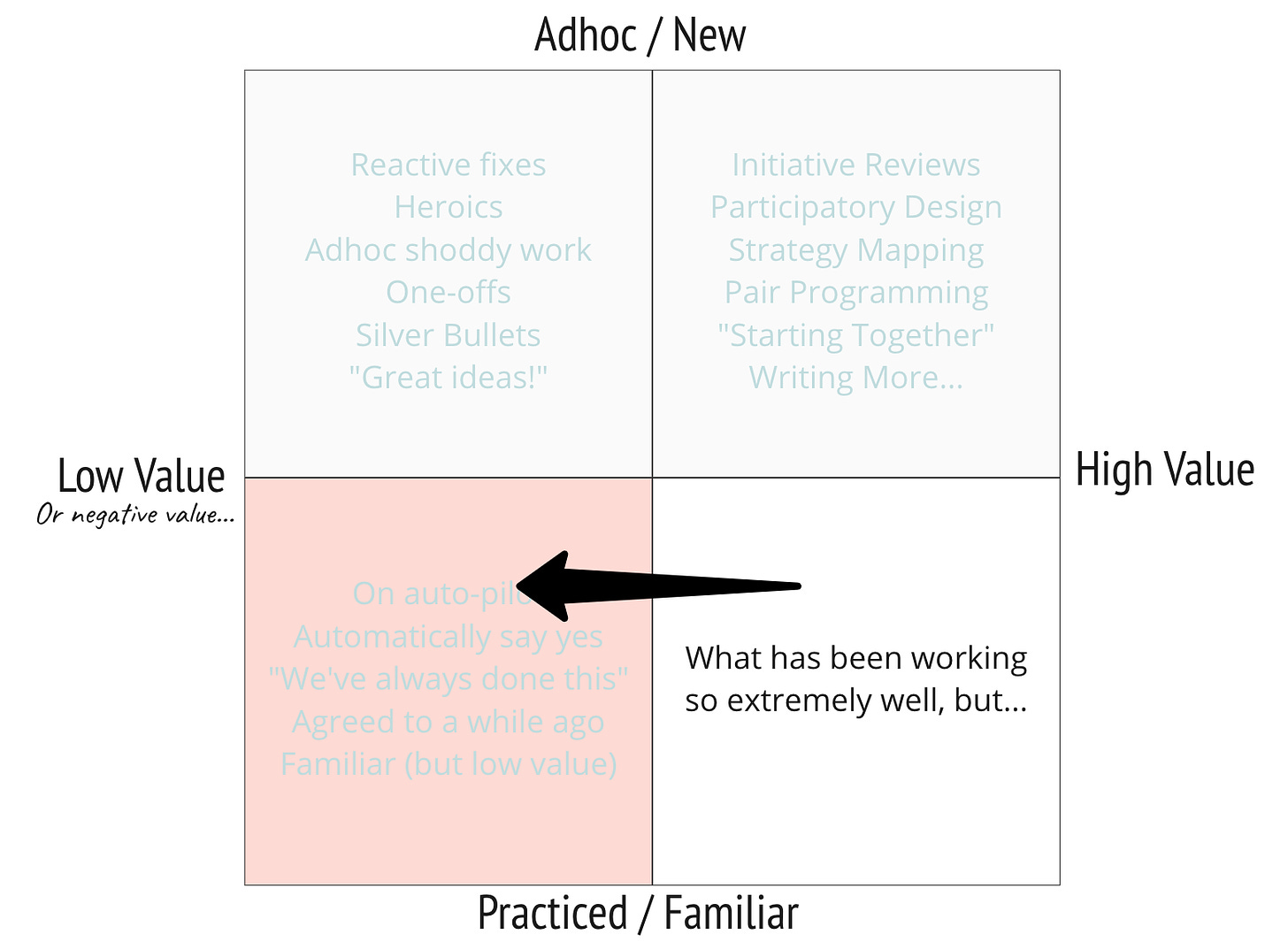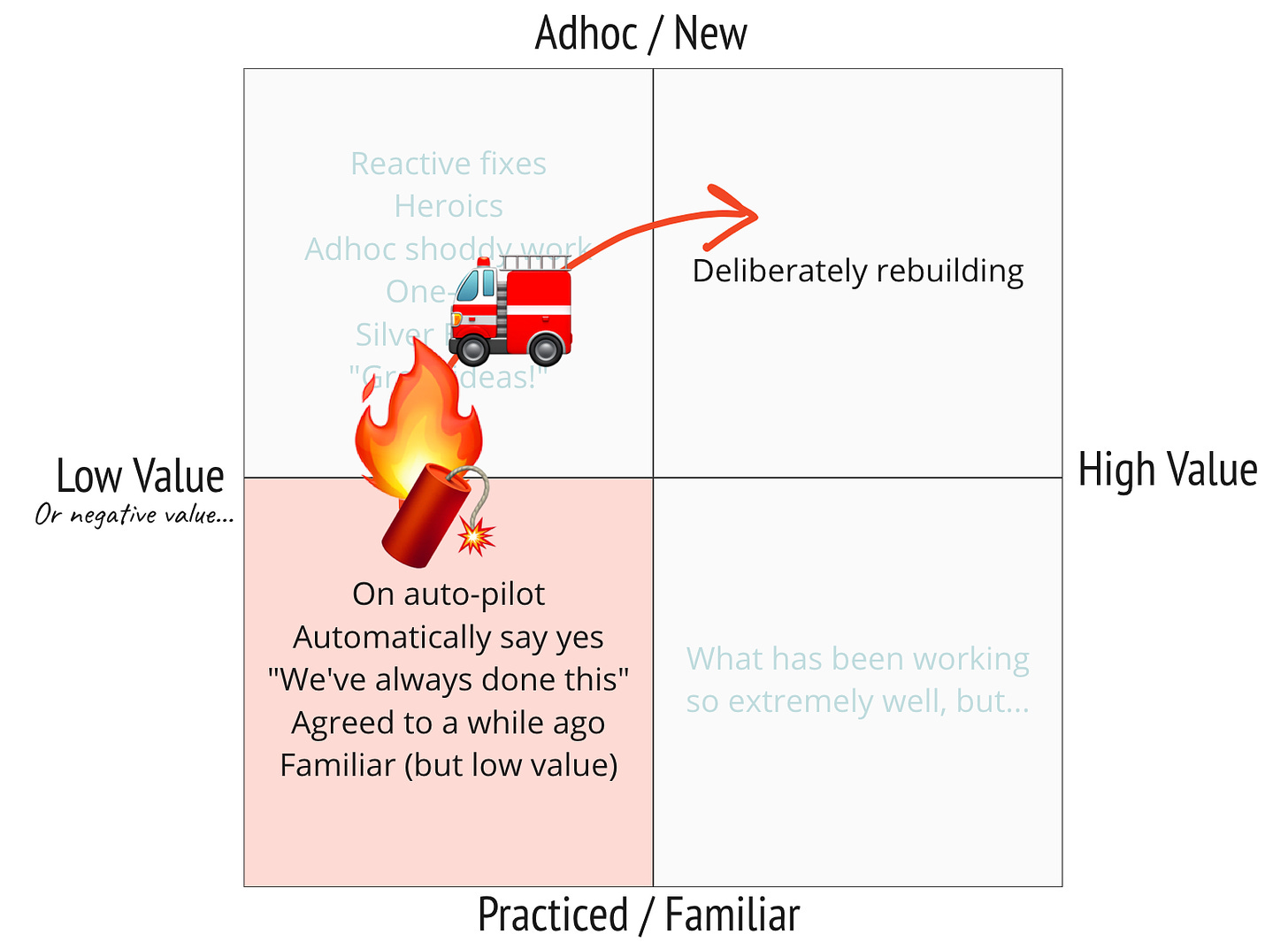Brief post this week. Not a new idea (I’m sure), but humor me as I work through it.
I often meet teams that are in the midst of trying something new (like conducting initiative reviews, or trying to start initiatives together instead of in silos). Trying something new is an intentional act. There’s a good chance it will feel uncomfortable, and will be cognitively taxing.
The hope is that with some time, the activities will begin to feel more practiced and familiar.
But this can be hard. It requires practice, motivation, forming habits, and a supportive environment. Plus, initially these activities can feel “low value”. We put the activities in the upper right hand corner, but at first they feel like this:
Meanwhile, in many cases our time and energy is drained in two (other) places:
We drain a lot of energy with
- A: reactive fixes, heroics, adhoc work, silver bullets, and chasing the latest “great idea”. This work can be especially draining!
- AND a lot of time (and energy) doing B things that are familiar to us, but aren’t very valuable (or actually cause harm).
Over time As can shift to Bs…which is pretty scary because we’re doing low-value things on auto-pilot. We’ve become desensitized.
One of the hardest shifts is when previously high-value things drift into the low-value quadrant. We get so attached! They feel so familiar!
And when the stuff on “overdrive”, finally implodes/explodes and requires triage, and forming new habits…
So why does this all matter?
- You have to make make room for the high value adhoc/new activities. You can’t just ADD this on top of everything else. Otherwise you’ll have no energy stores available to practice and work through the discomfort. REMOVE OTHER THINGS. MAKE ROOM.
- Figure out ways to periodically review the (supposedly) high value things that are on autopilot. Are they still high value?
- How much time/energy are you spending on familiar, low-value things? Why?
- Maybe the hardest question…are you perhaps stuck in a cycle of fighting fires, becoming desensitized, and finding more fires to fight? And is that keeping you from building new habits?

